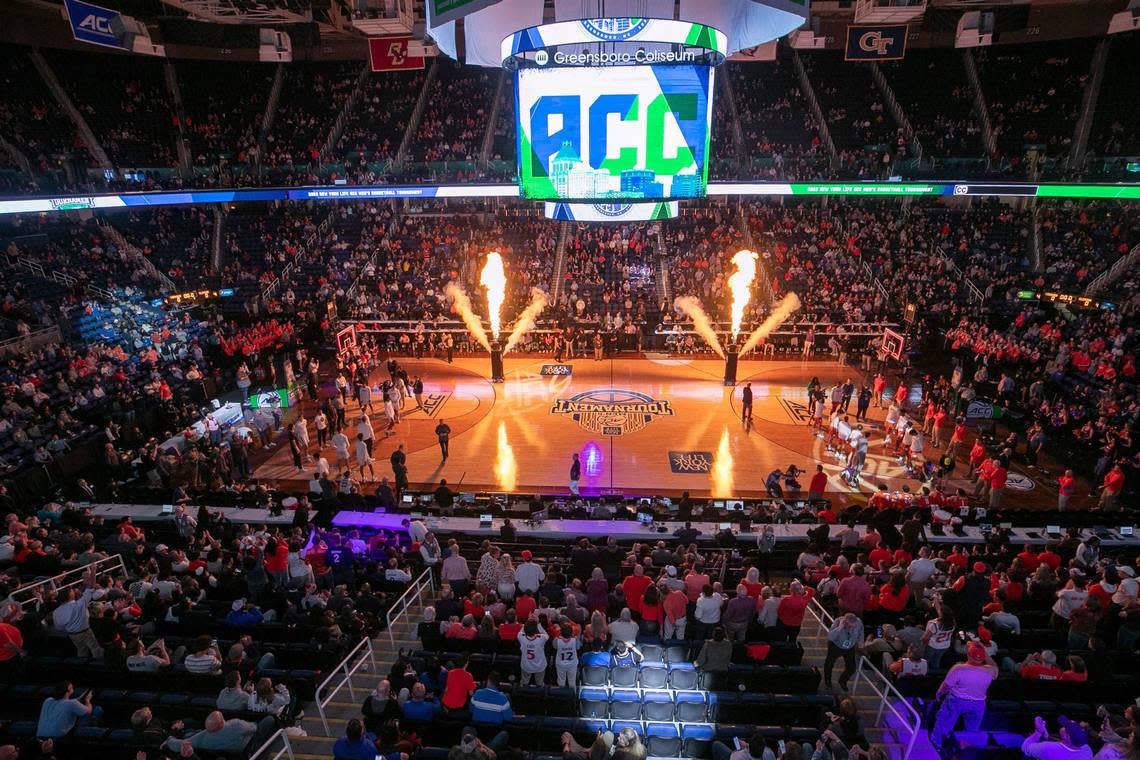Future ACC basketball tournaments will exclude teams after league expands to 18 schools

Next year’s ACC men’s and women’s basketball tournaments won’t include all league teams after the addition of SMU, Cal and Stanford balloons membership to 18 schools.
During league meetings in Charlotte which concluded on Wednesday, the ACC decided to keep the tournament fields at 15 for each event, meaning three teams won’t qualify.
The 2025 ACC women’s tournament will be played at Greensboro Coliseum, while the men’s tournament will be held at Charlotte’s Spectrum Center. Each continue to be a five-day format.
This marks an important departure from league tournament protocol. Since the ACC tournament began in 1954, it has always included all teams who are eligible to participate in postseason play. It gives every team a chance, no matter how poorly their regular-season record may be, to qualify for the NCAA tournament by winning the ACC tournament and receiving an automatic bid.
Beginning in 2025, only the top 15 teams in the 18-team league will qualify for the league tournaments. The ACC voted last year to add SMU, Cal and Stanford beginning with the 2024-25 academic year.
The ACC’s move is similar to what the Big Ten will do next year when it adds former Pac-12 schools Washington, Oregon, Southern California and UCLA to reach 18 schools. The Big Ten announced on Jan. 30 its 2025 men’s and women’s basketball tournaments will include 15 teams.
Also this week, the ACC decided that league men’s basketball teams will continue to play 20-game, regular-season league schedules, while the women’s league schedule will include 18 games for each team.
In football, two rules changes were approved unanimously by league coaches to let players and coaches utilize technology in ways that were previously not allowed.
One-way communication from the coaches to players on the field will be allowed using speakers inside the player’s helmet. This is similar to what is used in the NFL so plays can be called in to the quarterback and hand signals are no longer necessary.
Coaches will also have access to in-game video during the game.
Those rules changes will go into effect if the NCAA Football Rules Committee gives final approval this month to implement them nationwide.

